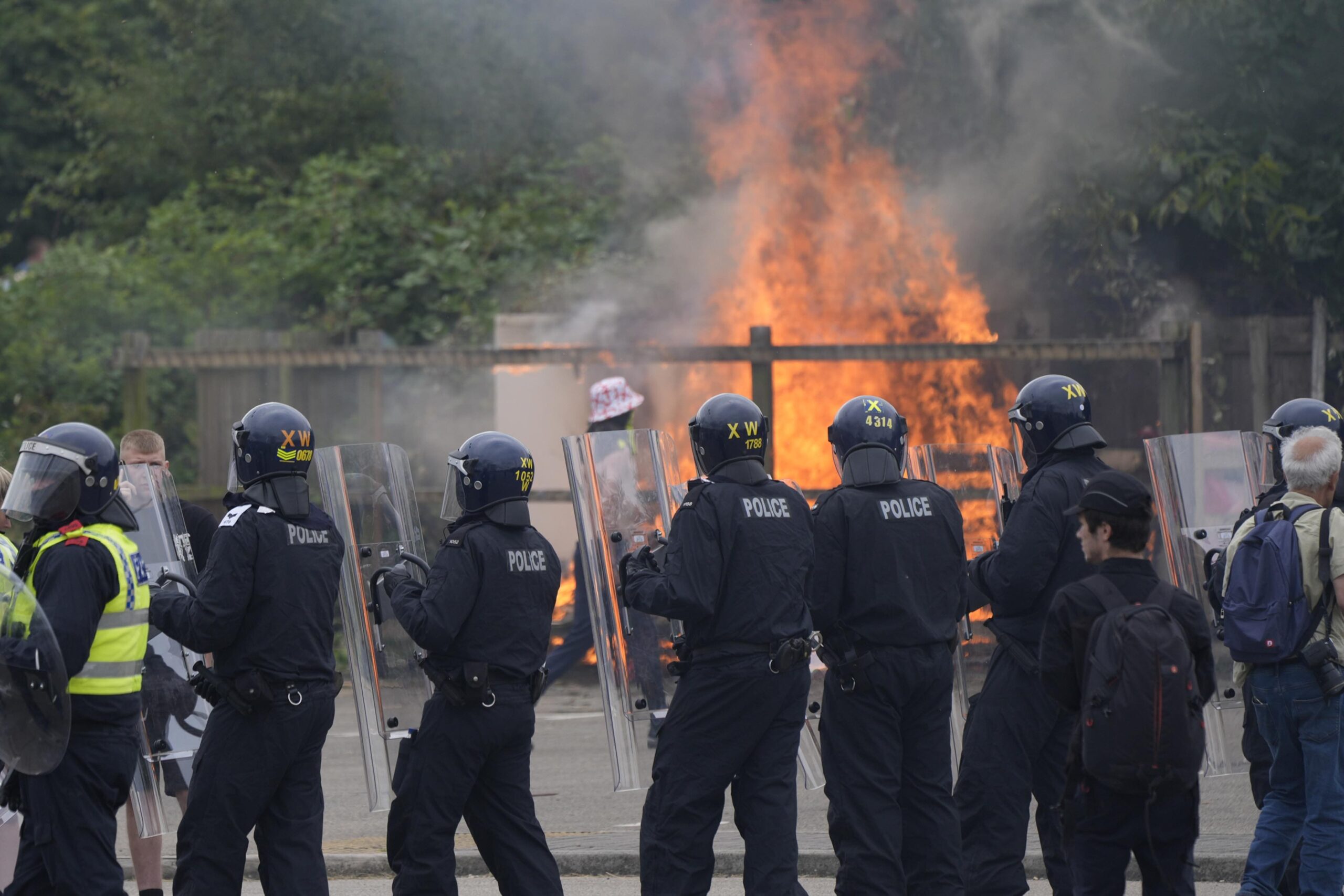The UK is a “powder keg” of social tensions which could easily ignite once again, a major report has warned a year after riots erupted across the country, sparked by the Southport knife attacks that killed three young girls.
One in three adults, the equivalent of 15 million people, say they rarely or never meet people from different backgrounds, according to the findings of research into the nation’s community strength and cohesion.
It also found that up to seven in 10 have never met or interacted with local asylum seekers amid polarised debate on immigration, struggles with the cost of living and declining trust in politicians.
Sir Sajid Javid and former Labour MP Jon Cruddas, who are chairing the new Independent Commission on Community and Cohesion, said the report shows “clear evidence” that societal bonds are under growing pressure.
Without action, the “very basis of our democracy is at risk”, they warned.
“This is leaving our society more fragmented, fragile, and less resilient to internal and external threats,” they said.
“At the same time, forces driving division are intensifying: political polarisation is deepening and trust in institutions is declining, while mounting economic pressures – particularly the cost of living crisis – are fuelling widespread frustration, intensified by a widespread belief that immigration policy is in chaos.
“These trends are inextricably entwined – narrowing the space for constructive dialogue and increasing the risk of further unrest and alienation.”

It comes after last summer when far-right riots broke out in towns and cities across the country, with hotels housing asylum seekers targeted.
The unrest was triggered after misinformation spread on social media claiming the attacker who launched a knife rampage at a Taylor Swift-themed children’s dance class on 29 July, killing three girls, was a Muslim asylum seeker.
The perpetrator was later revealed to be 17-year-old Axel Rudakubana, who was born in Cardiff to Rwandan parents who were Christians.
The State of Us report, by independent think tank British Future and the Belong Network, described the clashes as the result of a “tinderbox of long-term social pressures” which remain unaddressed.
“Without urgent action, unrest risks being reignited,” the report said.
“We saw what that can look like in the disorder of last summer. Attacks on visible minorities and people seeking asylum marked the UK’s worst targeted violence in a generation.
“High streets, businesses and community spaces were damaged or destroyed and people fought the police in the streets.”
The survey of 2,243 UK adults and eight focus groups (with a total of 71 participants) held around the UK, including in areas that faced riots, showed that concern around immigration is the top reason for tensions within local communities.
Around half (49 per cent) of respondents believe that divisions between locals and those who have migrated to the UK, including refugees and asylum seekers, are negatively affecting how well people from different backgrounds can get along in their area.
But the majority of people (67 per cent) say that they have never met or interacted with asylum seekers in their local area, or are unsure if they have.
Divisions over migration were ranked more negatively than religious, ethnic, political and wealth-related divides.
One in three adults say they rarely or never have the opportunity to meet people from different backgrounds.
Financial security plays a part in this – half of people believe that they don’t have enough money to go and meet people in common spaces, like cafes or pubs.
During last year’s riots, tensions over asylum seekers were central to fanning flames of violence, as misinformation about the identity of the killer was viewed over 420,000 times on social media at the time, an investigation by The Independent found.
This resulted in attacks on asylum hotels and incitement of violence online, with subsequent arrests of people including Lucy Connolly, wife of a Tory councillor, who was jailed for 31 months over a tweet.
This lack of awareness extends further, as 4 in 10 people do not even know if asylum seekers are being housed in their local area, the survey reveals.
The survey also found that although eight in 10 people still believe that people from different backgrounds get along well in their area, this has gone down in the past few years.
Those in the most deprived areas are least likely to say that different backgrounds get along (69 per cent), compared to 90 per cent in the most affluent areas.
A map of the data in different local authorities shows that a higher perceived lack of social cohesion is recorded in areas in the north, particularly near Manchester and Leeds, in addition to areas east of London.
Cohesion between people of different backgrounds is perceived to be worst in Boston, at just 59 per cent; 21 points below the national average.
The town was home to racially-motivated riots over two decades ago following the 2004 Euros, a Brexit stronghold, and elected Reform MP Richard Tice.
